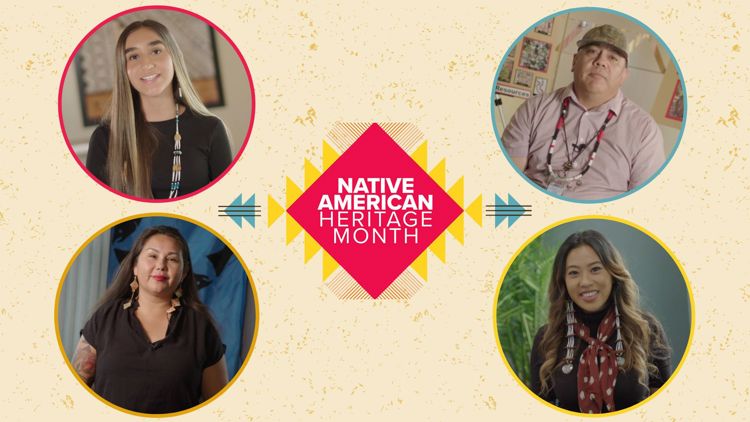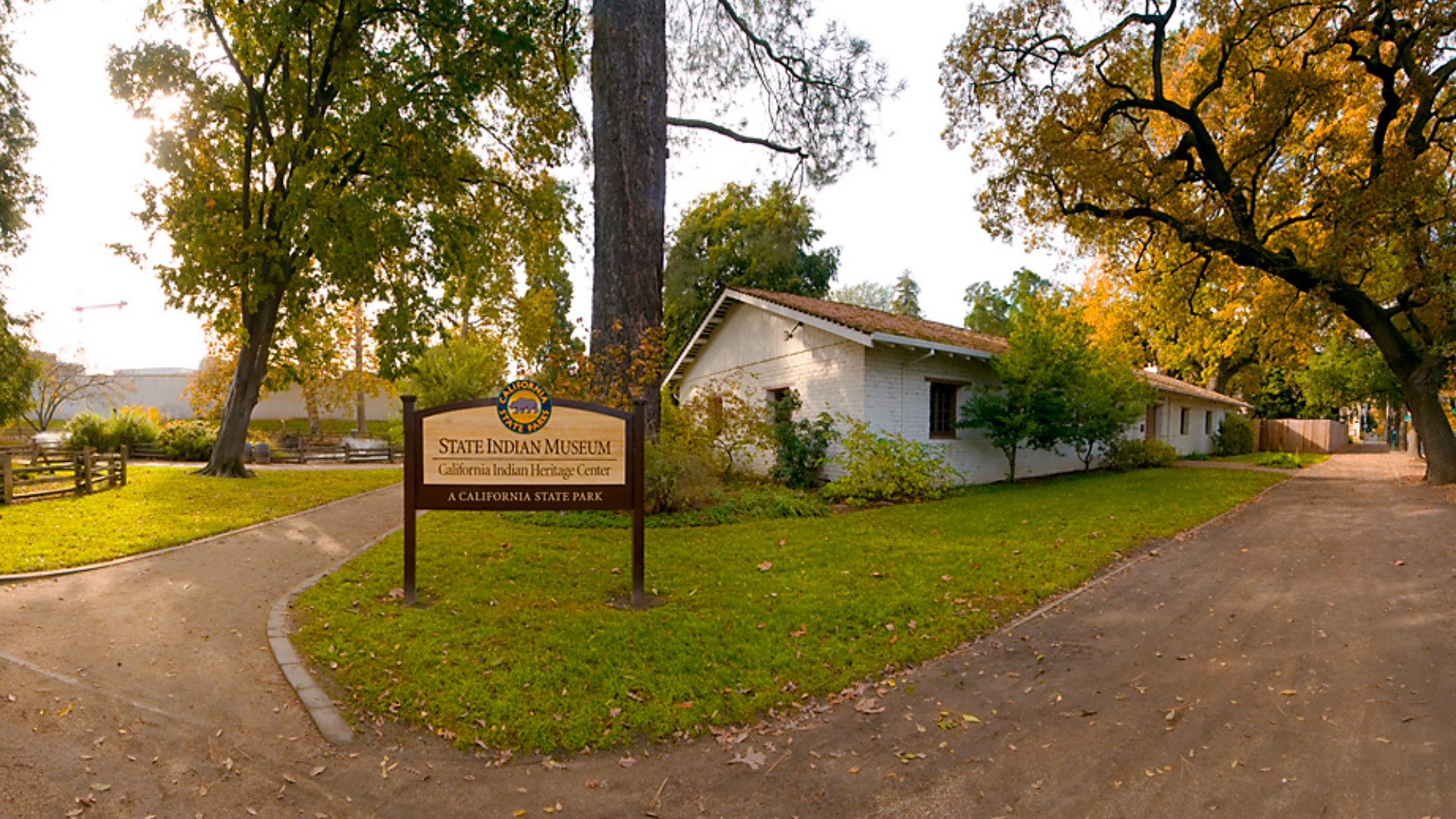SACRAMENTO, Calif. — Every November, we celebrate Native American Heritage Month to honor the traditions, languages and stories of Native American and Alaska Native communities.
The Bureau of Indian Affairs chose its 2024 theme, "Weaving together our past, present and future." This theme reflects on the harms of past policies, such as federal Indian boarding schools, while also shining a light on the ongoing efforts to heal the intergenerational trauma Native communities are still facing today.
Last month, President Joe Biden formally apologized to Native Americans for the government-run boarding school system that forcibly removed Native children from their families, as well as the U.S. government's role in the abuse and neglect of children to assimilate them into white society.
ABC10 sat down with four Native community leaders in Northern California to hear how they're driving change and making a positive impact.
Alina Sanchez
Alina Sanchez has always been deeply connected to her culture, growing up with traditional songs, dances and customs. Sanchez is Miwok and a member of Wilton Rancheria. She is actively involved in her tribe and community, participating in events like the annual Native American Breast Cancer Awareness Walk in Elk Grove and Native American Day at the Capitol.
Sanchez is a passionate 16-year-old youth advocate dedicated to making a difference. For an essay assignment in her English class, Sanchez chose to share about her experience attending a Missing and Murdered Indigenous Peoples (MMIP) walk. She recalled what it felt like marching from Sutter's Landing to Sutter's Fort, chanting the words into a megaphone, "What do we want? We want justice!" The MMIP crisis draws attention to the disproportionately high rates of violence against Native Americans, leading to many under-reported and unsolved cases. Sanchez believes raising awareness helps ensure the names of those impacted are not forgotten.
Guided by her elders, Sanchez strives to be a leader. This year, she joined Wilton Rancheria's Future Leaders Council as the secretary and hosted a tribal graduation ceremony. She's also a member of Native Sisters Circle, an organization empowering Native girls and young women to embrace their identity and build sisterhood through cultural activities and support groups.
Vince LaPena
Born in Redding, Vince LaPena, a member of the Wintu Tribe, was immersed in the cultural practices of Indigenous communities across Northern and Central California from a young age.
Raised on his great uncle's allotment in Lake Head, both of his parents made sure he attended cultural ceremonies and gatherings and learned from a network of elders and culture bearers. This was particularly important for LaPena's father, who was not granted those same opportunities as his son. As a child, his father was sent to Stewart Indian School, a federal Indian boarding school. Indian boarding schools, which operated from 1819 through the 1970s, were established across the nation to culturally assimilate American Indian, Alaska Native and Native Hawaiian children by forcibly removing them from their families and preventing them from practicing their cultures. LaPena’s upbringing helped him strengthen his connection to his heritage and develop a deep appreciation for the shared values and unique traditions of different tribes.
Today, Vince brings his passion into his role as the Traditional Ecological Knowledge (TEK) manager for Wilton Rancheria. TEK bridges Indigenous knowledge and environmental stewardship, highlighting the sacred connection between humans, animals, plants and the land. Vince works to help Native communities reconnect with traditional practices, like using natural medicines, while also educating the public about the importance of preserving both cultural and natural resources.
For LaPena, Native American Heritage Month is more than just a single month — it’s a year-round celebration of identity and survival. But when November comes around, he sees it as a special time to celebrate the harvest, share stories and prepare for the winter ahead.
Caressa Nguyen
Caressa Nguyen describes herself as a "quintessential California mix," reflecting on her Filipino, Vietnamese and Miwok heritage. Her identities are deeply rooted in California: Tagalog is the state's third most spoken language, California has one of the largest Vietnamese diasporic communities in the U.S., and she is a member of the Ione Band of Miwok Indians, indigenous to the region.
Nguyen works hard to stay connected to her roots. She visits her family in Vietnam every year and even piloted a zero-waste shop model in the Chàm Islands of Vietnam, recognized as a UNESCO Biosphere Reserve, to reduce environmental impact and support local entrepreneurs. Her grandmother also made sure she stayed engaged with her Native culture, taking part in Big Time celebrations to pray for and celebrate the acorn harvest at Chaw'se (Indian Grinding Rock State Historic Park) and spending time on her family's land in Ione.
By participating in her tribe's cultural practices, Nguyen has deepened her understanding of how policy impacts both the environment and her community. This is one of the reasons she co-founded Sacred Lands, Native Hands, a nonprofit dedicated to regaining access to land to promote health and wellness. Right now, the organization is working to acquire land around the traditional ceremonial house at Indian Grinding Rock State Historic Park to preserve it for future generations. Nguyen said it is only by reclaiming traditional lands that one can begin to address the long history of systematic attempts to sever Indigenous people's relationships to the land.
Nguyen sees Native American Heritage Month as a time to "acknowledge, honor, and amplify the Indigenous peoples of the land you occupy." She believes empowering Indigenous communities can include donating to tribally led initiatives and supporting Indigenous people in leadership roles.
Morning Star Gali
Morning Star Gali was born into Indigenous traditions and activism. A member of the Ajumawi Band of the Pit River Tribe, Gali was born at a Freedom and Survival School in Oakland, operated by the American Indian Movement (AIM), a grassroots movement for Indigenous rights. From the age of two, Gali was immersed in cultural teachings and learned from educators who were part of the 1969-1971 occupation of Alcatraz Island.
Gali’s advocacy is deeply connected to her family's history of resistance and empowerment. Her father, Isidro Gali Jr., was involved in the Third World Liberation Front (TwLF), fighting for ethnic studies. He was incarcerated at San Quentin State Penitentiary for seven years in the 1970s, during the time the American Indian Movement was forming in response to police violence and brutality against Native people. While incarcerated, he also worked to pass the American Indian Religious Freedom Act. In 1993, Gali's father returned to San Quentin, this time as the first full-time spiritual advisor for the California Department of Corrections and Rehabilitation (CDCR), where he provided religious counseling and ceremonies for Native inmates.
Gali's work with her nonprofit is deeply influenced by her father's story. Founded in 2022 and originally named Restoring Justice for Indigenous Peoples, Indigenous Justice focuses on addressing the overrepresentation of Native Americans in the U.S. criminal justice system, a result of federal oppression. The organization also advocates for environmental issues, including the successful removal of dams on the Klamath River to restore salmon populations and other native species, and has pushed universities to return Native American artifacts under the Native American Graves Protection and Repatriation Act. Gali has also helped lead key policy changes, such as the passage of AB 2022, which removes the derogatory S-word from public place names. As a mother of four and community leader, Gali views Native American Heritage Month as a time to fight against erasure and celebrate the thriving cultures, traditions, and knowledge of California Indian peoples.
Watch more stories celebrating Native American heritage: Inside what California's State Indian Museum has to offer during Native American Heritage Month





















